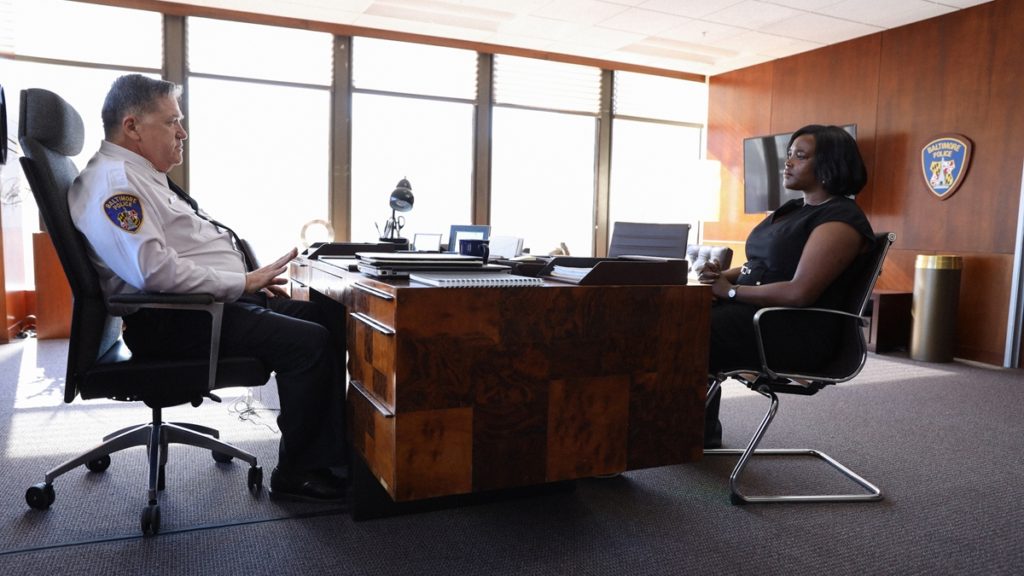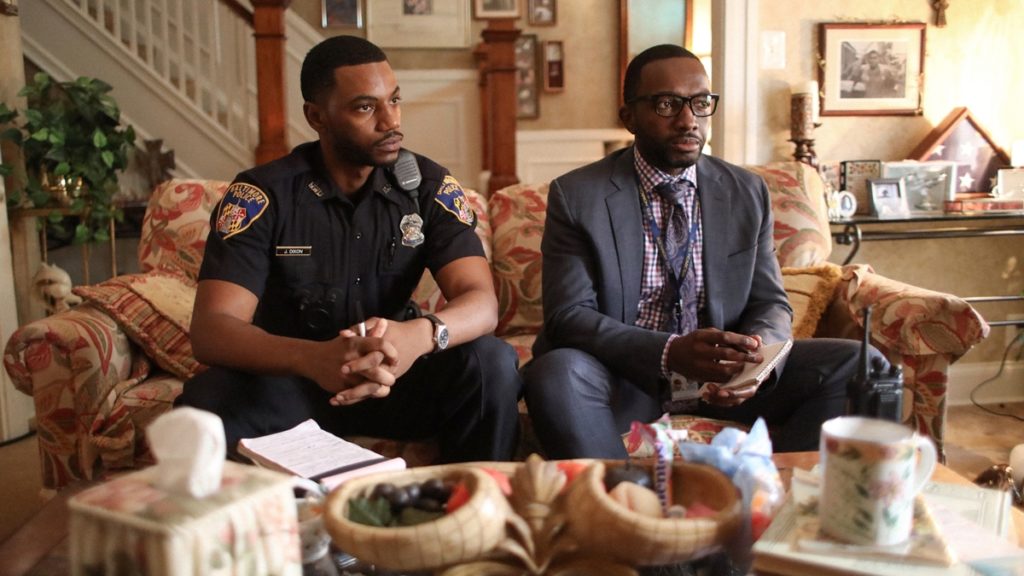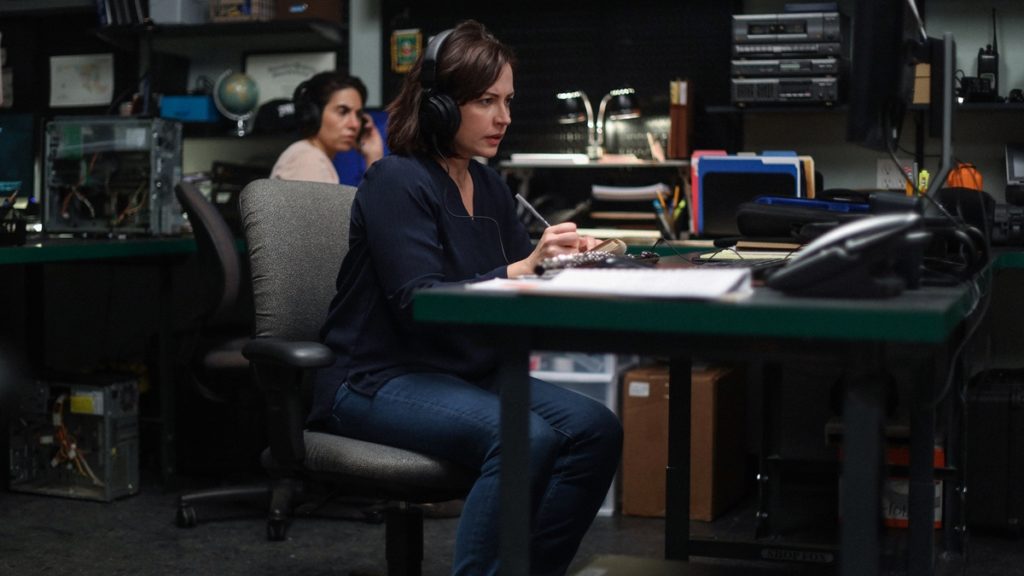Read also:
How to Watch FX Live Without CableHow To Watch AMC Without CableHow to Watch ABC Without CableHow to Watch Paramount Network Without CableSimon and Pelecanos’ return to Baltimore is a clear-eyed look at pervasive police corruption.
The easy move in discussing We Own This City is to compare it to co-creators David Simon and George Pelecanos’ The Wire. After all, they both concern crime, police, and politics in Baltimore. However, to do so diminishes both.
The Wire presents a far more comprehensive and all-encompassing look at hope and corruption in the Charm City. We Own This City, on the other hand, outlines a kind of corruption so ingrained The Wire would’ve struggled to capture it accurately. This isn’t necessarily a “truth is stranger than fiction” situation. It’s a “truth is somehow more soul-deadening” series. By the end of City, one might find themselves longing for the likes of a McNulty. At least hope existed there at some point.

Over the past several years Americans have become increasingly aware of some of the damning activities of police forces. It’s likely longer if you are a person of color, live in an underprivileged neighborhood, or pay close attention. The petty arrests, the violence, the wielding of power unchecked, the sense of entitlement unquestioned. City doesn’t hesitate to show this side of Baltimore’s police, especially the Gun Tracing Task Force, in unblinking commitment.
However, many might not be prepared for the sucker punch of less headline-grabbing corruption. The literal mugging of citizens for 20 or 30 dollars. The wild overtime claims. So many have seen images of violence perpetrated by the police, the silly penny ante stuff is almost more surprising. To use an incredibly reductive example, it’s like learning about a team of elite bank robbers that stole millions. They kill and injure several while doing so. Then, they took the time to steal candy from children before they made their getaway.
Every aspect, from the writing to the acting to Green’s direction, work in concert.
The challenge for Simon and Pelecanos, along with fellow episode writers Ed Burns, Dwight Watkins, and William F. Zorzi, is how to portray the officers without just making them two-dimensional monsters OR making them overly sympathetic. It’s no easy feat, but City largely pulls it off. Adapted a book by Baltimore Sun reporter Justin Fenton, the series covers nearly two decades of Baltimore Police corruption through the activities of the GTTF.
In addition to the strong scripting, the show utilizes its talent well. Jon Bernthal as Sgt. Wayne Jenkins is a particular standout. We Own This City doesn’t present his rise to power and simultaneous total corruption as tragic, per se. The script, Bernthal’s performance, and director Reinaldo Marcus Green are careful never to portray it as a fall from grace. This isn’t a good man corrupted by a flawed system kind of story. When Jenkins looks out over a field near the series’ end, it’s clear he’s contemplating what’s been lost. However, the series doesn’t try to make you sympathetic to him. It’s a matter of fact.

That objective perspective might make We Own This City too difficult for some to watch. As alluded to above, the hopelessness sometimes can reach crushing levels. What passes for uplift is one character, on the day they quit, telling their successor, “It’s your turn now”. It tells the viewers the fight goes on, but it doesn’t exactly qualify as inspirational.
The series’ shattered timeline will likely be the other roadblock for audiences. Within episodes, the story jumps from the show’s present to 2 years earlier to a decade earlier, and back. It well grounds the present-day action in Baltimore after the murder of Freddie Gray. However, City refuses to frame that crime as more than a symptom. The timeshifts necessary to represent that may make some feel lost at sea. For this reviewer, it worked. The technique makes clear the sense that corruption has reigned over this area for so long. Yesterday can feel like tomorrow can feel like 12 years ago with only different hair or uniforms marking the difference. However, a missed caption or two can complicate understanding very quickly.

Besides Bernthal, there are so many other performances to praise. Nicole Steele’s is so well authored by Wunmi Mosaku’s performance. It is enlightening and heartbreaking in equal measure. Same goes for Jamie Hector as Sean Suiter, a homicide detective who spent perhaps too much time in Jenkins’s shadow. The normally affable Josh Charles drains every bit of warmth from his performance. His Daniel Hersl is a cop so notorious for excess his name becomes almost a punchline. This review could go on just ticking them all off. There isn’t a wrong step in any of the acting.
We Own This City, in total, feels near flawless. It’s a tremendous piece of in-depth work. Every aspect, from the writing to the acting to Green’s direction, work in concert. It isn’t a triumph because you can’t call this sort of reflection of true-life bleakness “triumphant”. It is, however, a fully realized work that refuses to sugarcoat anything in the name of a happy ending.
We Own This City starts skimming off the top on HBO April 25.